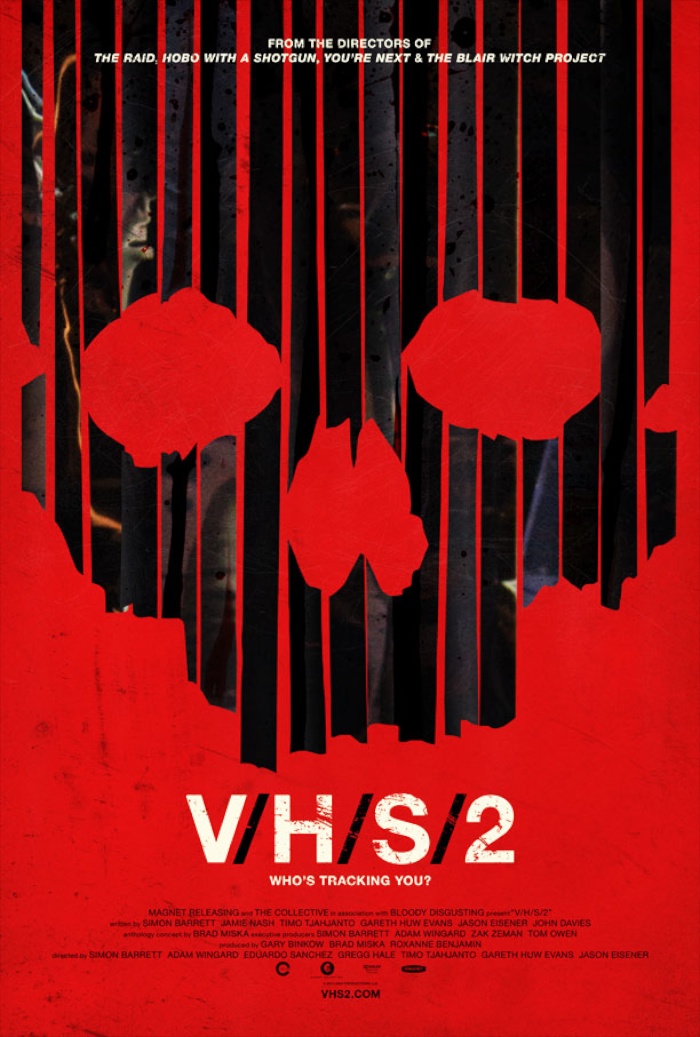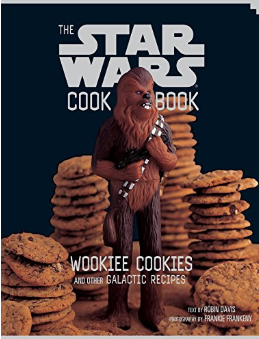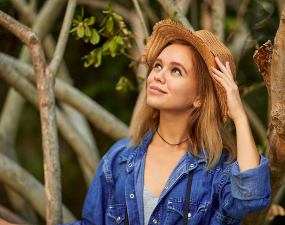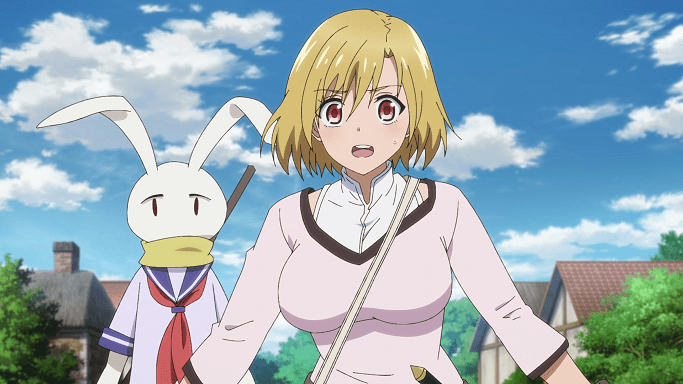The first V/H/S was a boy’s club. The sensibility of that film, an anthology released to much acclaim and success in 2012, was so aggressively straight and male that the entire film was nearly spoiled.
From the framing sequence’s group of men assaulting women while videotaping their exploits to the frat-boy bar pickup/sex in a hotel of Amateur Night to the video-chat sex in The Sick Thing That Happened to Emily When She Was Younger, V/H/S is packed full of gratuitous–and too-often victimizing–female nudity. You got the sense that the movie was made by bros, for bros. By the end of the movie, I felt like I’d had toxic testosterone overdose.

To be fair to the filmmakers (who I’m sure are not all bros, and who have made good work in the past), it seems the goal was to mimic the vibe of the 1980s home-video horror boom, which was long on gory kills and jiggling boobs. But it’s not the 1980s anymore and those boobs stood out. Not in a good way. They looked like signs that women weren’t really welcome in V/H/S/ except as objects of sex and death. Certainly they weren’t welcome behind the camera or keyboard: none of the film’s directors or writers had XX chromosomes.
V/H/S/2, which will hit theaters in July and which I saw recently at the Independent Film Festival Boston, marks a major improvement in the tone of the series. It can’t pass through its initial 60 seconds without pointless boobs (though this time there’s also some dong for good measure), but after that, the nudity–where it exists at all–is mostly restrained and reasonable (with one notable exception, Adam Wingard’s Clinical Trials, which features a pretty out-of-nowhere sex scene). In V/H/S/2 the vibe is no longer uber-bro and all of its installments are better than even the strongest of the original’s.
But while they’re not being disrobed and/or stabbed this time, where in the production are women? Again, not behind the camera or at the keyboard: all 7 directors are men. So are all 7 writers (though most of the segments are by writer/directors).
Horror film feels like a boy’s club, perhaps more now than ever (despite the presence of initiatives like Women in Horror Month). While that’s always been true in Hollywood (get stats on women directors), there are tons of great directors and writers working outside traditional channels and archetypes–but they’re almost all male (nothing wrong with that, I note whenever looking in the mirror). A diversity of voices would lead to a richer genre, one that lets women be subjects, not just objects to be ogled or groped or gouged.
The success of the original V/H/S led to a quickie sequel the surpassed the original, which makes it likely that there will be a V/H/S/3. If so, couldn’t we see some women writing and/or directing? Perhaps an entire movie helmed by women? But this idea leads to the question: What female horror writers or directors would be involved?
It doesn’t seem like an easy answer. After all, none of the major horror directors of the last 50 years are women. Of the major female directors who have made horror films, like Kathryn Bigelow, none are working in the genre now. But that doesn’t mean there aren’t good options. With a little rumination (and judicious IMDB use), I was able to come up with a few candidates:
- Jen and Sylvia Soska, whose American Mary has generated good notices
- Angela Bettis, star of May, who directed her May director Lucky McKee in Roman
- Mary Harron, director of American Psycho, who has kept her toe in the genre with 2011’s The Moth Diaries
- Marina de Van, director of the supremely disturbing In My Skin, a film about self-canibalism.
If those directors don’t work, perhaps up and coming talents like Elisabeth Fies, Amy Lynn Best, Tiffany D Jackson, women whose work I haven’t seen, but who are regularly mentioned in the “female horror directors” conversations. Even better, there’s an entire film festival, Viscera, dedicated to female filmmakers. Surely there are some suitable talents there?
The relative paucity of female horror writers and directors is worrisome for the genre. Lest bigscreen horror get to insular, too homogeneous, too much by and for men alone, it needs–to belabor a phrase used too often with horror–fresh blood.
Readers, any female horror directors or writers you like or who you think would fit well in upcoming anthology films?










